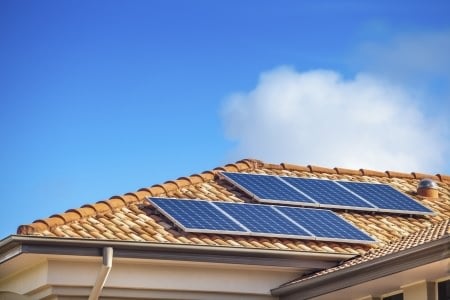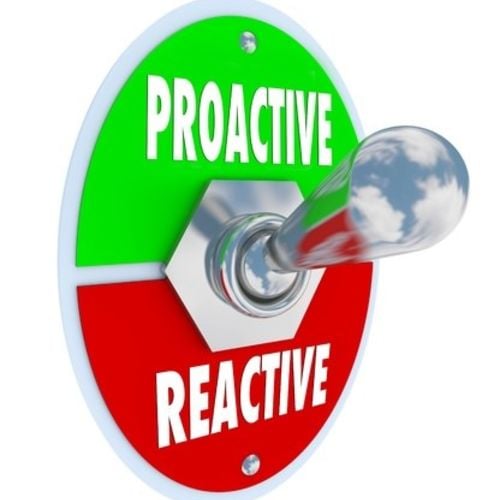The use of solar power on California homes has skyrocketed over the past few years. Having a solar power system on your roof is a good thing, on many levels. However, the systems typically cost well over ten thousand dollars to have them installed, and often can cost several multiples of that. But how can you show that value to a buyer, to persuade him to pay for it? And, what if the solar panels are leased versus owned, how can that affect the marketing and sale of your home? This article explores the ins and outs of selling a home with a solar power system.
#1: Prepare a Disclosure Package about the system
Buyers are going to have a lot of questions about your solar panel system. Make sure you have the answers ready for them. Be prepared to show when it was installed, by who, what the warranty and service plan look like. If your system is leased, make sure you know the procedures for getting the lease assigned to a new owner. Also, you’ll need to disclose to the buyer – and have it written into the contract- that the deal is contingent upon the buyer getting approved to assume the solar lease. Get the paperwork ready, and know all the steps that are involved in getting the lease moved over to a new buyer. It can take some time to transfer a lease, so if you are not prepared, you may find your home sale takes longer to close than anticipated.
#2: Document the Dollar Savings
You will want to show buyers how much benefit the solar panels add to the home – so they’ll see the value in paying more for your home which has these panels. Gather your energy bills from a year before you had the panels, and the most recent year’s electric bills, to really show the power savings. Make sure that your buyer understands that the savings should increase over time. The utility provider will be increasing the cost of energy from the grid, whereas the energy cost from your solar panel system will remain relatively fixed. Go ahead and make a projection into time to help them visualize the savings down the road.
#3: Calculate the System’s Added Value
Let’s say you paid $25,000 to put a solar system on your roof – does that make your home worth $25,000 more than your neighbor’s identical tract home that lacks a solar system? The New York Times ran a piece last year about a study by the Lawrence Berkeley National Laboratory appraising solar panels. The study found that for solar panels that are owned (not leased), buyers paid about $4 per watt. So calculate how many watts your solar system puts out, multiply that by 4, and voila! That’s how much your solar panels are worth – according to this one study anyway. Of course, the value varies from market to market; expect the dollar-per-watt to be lower in areas of cheap electricity, and higher where electricity is more expensive.
Many homeowners, though, don’t actually own the solar panels on the roof – quite a lot of them are leased. Does a leased solar system add any value to a home? This is more difficult to calculate, and to figure this out you’ll have to know how much the monthly savings are. Say your electric bill went from $200/month before the system to $50/month after the system – but your lease costs $100/month. That means you are saving $50/mo versus not having the system. How much value any one appraiser would add for that – if any – is open for debate. A good, defensible number would be five years of energy savings – so $50/month x 60 months = $3,000 in added value.
#4: A HERO Loan Won’t Save the Day
Thousands of home owners have turned to the HERO Program as a way to pay for their solar systems. The HERO program is a wonderful way for home owners to get money to do all kinds of energy-efficiency improvements in the home – there’s just one problem. The HERO loan is attached to the property, and you pay it back on your property taxes. As of today, due most loan guidelines, it will be difficult or impossible for a buyer to get a loan on a home with a HERO loan attached to it. To sell your home, the HERO loan will need to be paid off before or at closing – so remember that when you’re calculating the expected proceeds from the sale.
#5: Educate buyers about the Energy Efficient Mortgage
If your home has a solar power panel system, you’ll want to charge your buyers a bit more for it. That can be a problem though, as the higher the price for your home, the smaller the pool of buyers will inevitably be. You can help yourself sell your home by highlighting the Energy Efficient Mortgage, which allows buyers to qualify for slightly higher mortgages because their cost of ownership will be somewhat lower due to the energy savings offered by qualifying homes.
#6: Take the Solar Power Panels With You
If you own the panels outright, but you’re having a tough negotiation with the buyer who claims the panels have no value, suggest then that you take the panels with you when you leave. The truth is, most buyers will see some value in the panels, and could be persuaded into paying more for your home with the fear of their loss.
#7: Offer to buy out the lease for the buyer
Many buyers will feel skittish about having to apply for credit with, and ultimately make payments to, a financing company which they have no experience with. If you find that buyers are balking about taking over the lease, suggest that with a higher offer price, the solar lease could be bought out and they would not need to make any lease payments – yet the solar system would still be serviced by the leasing company for years to come. It could work out to be a win-win-wins situation for all concerned.





